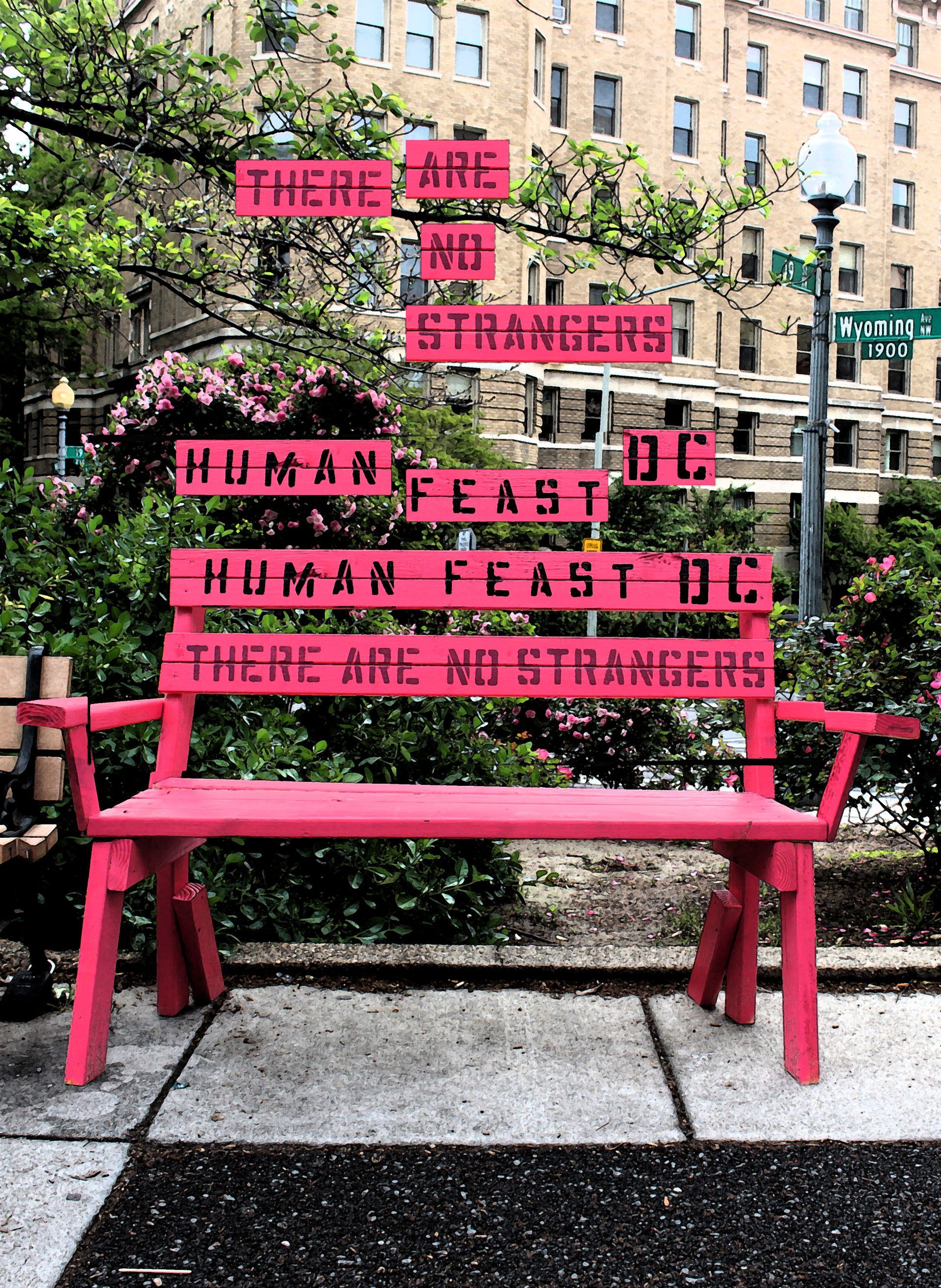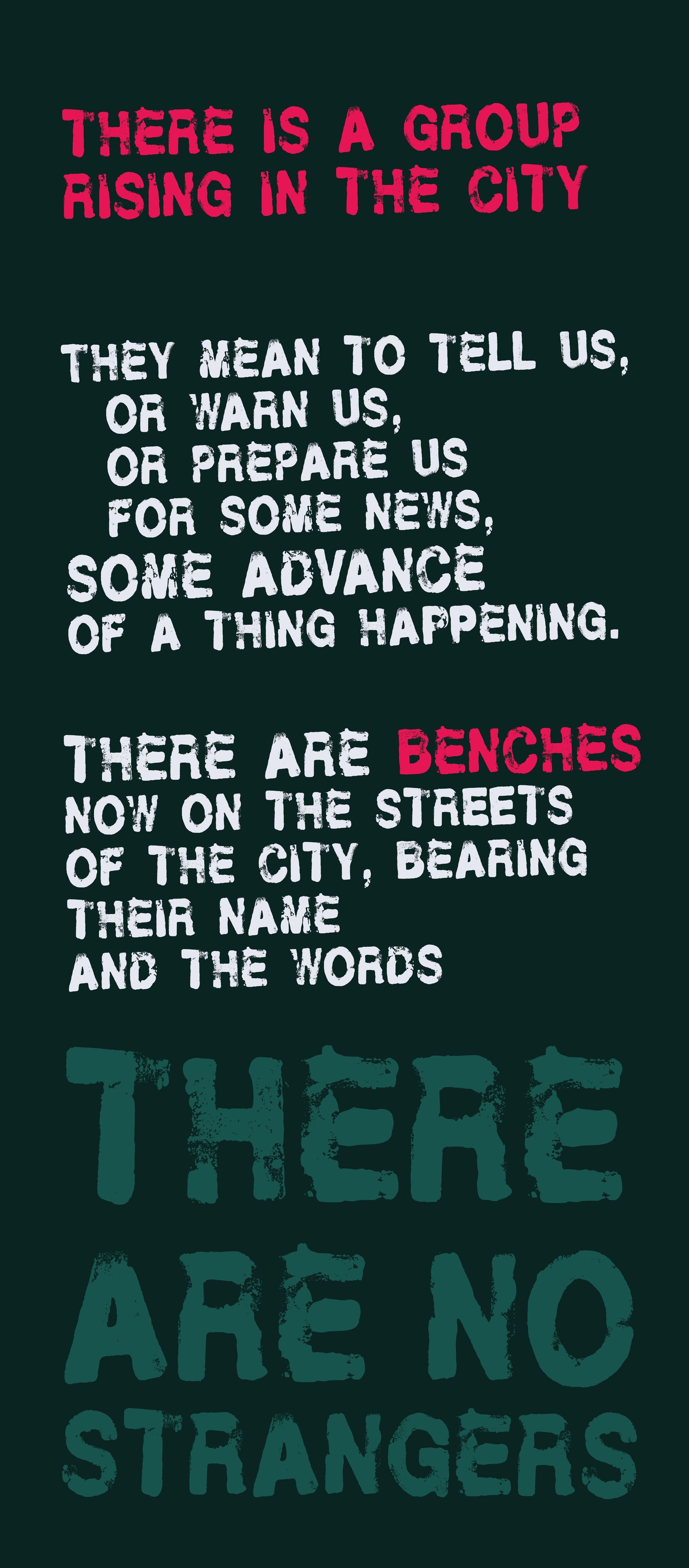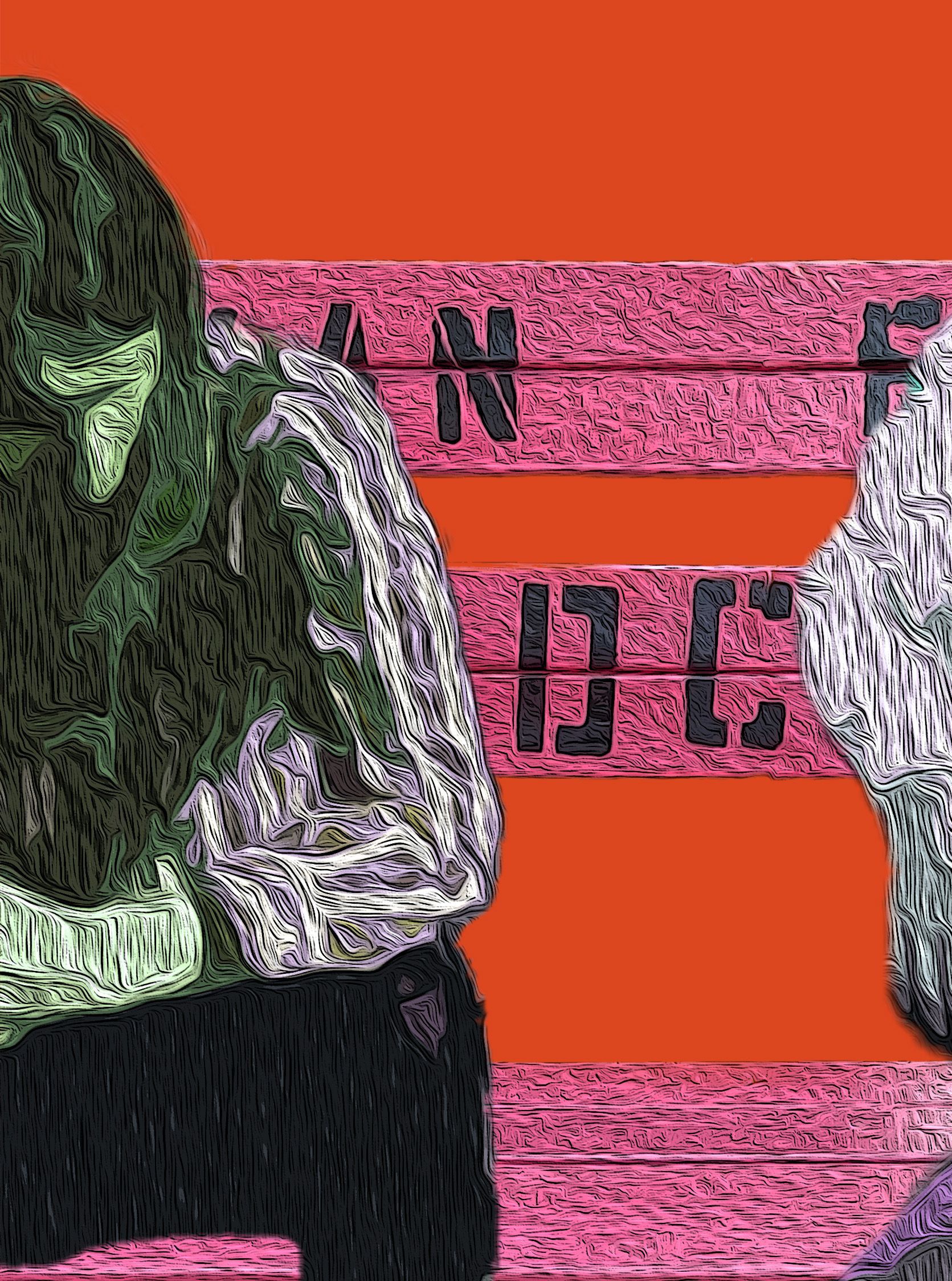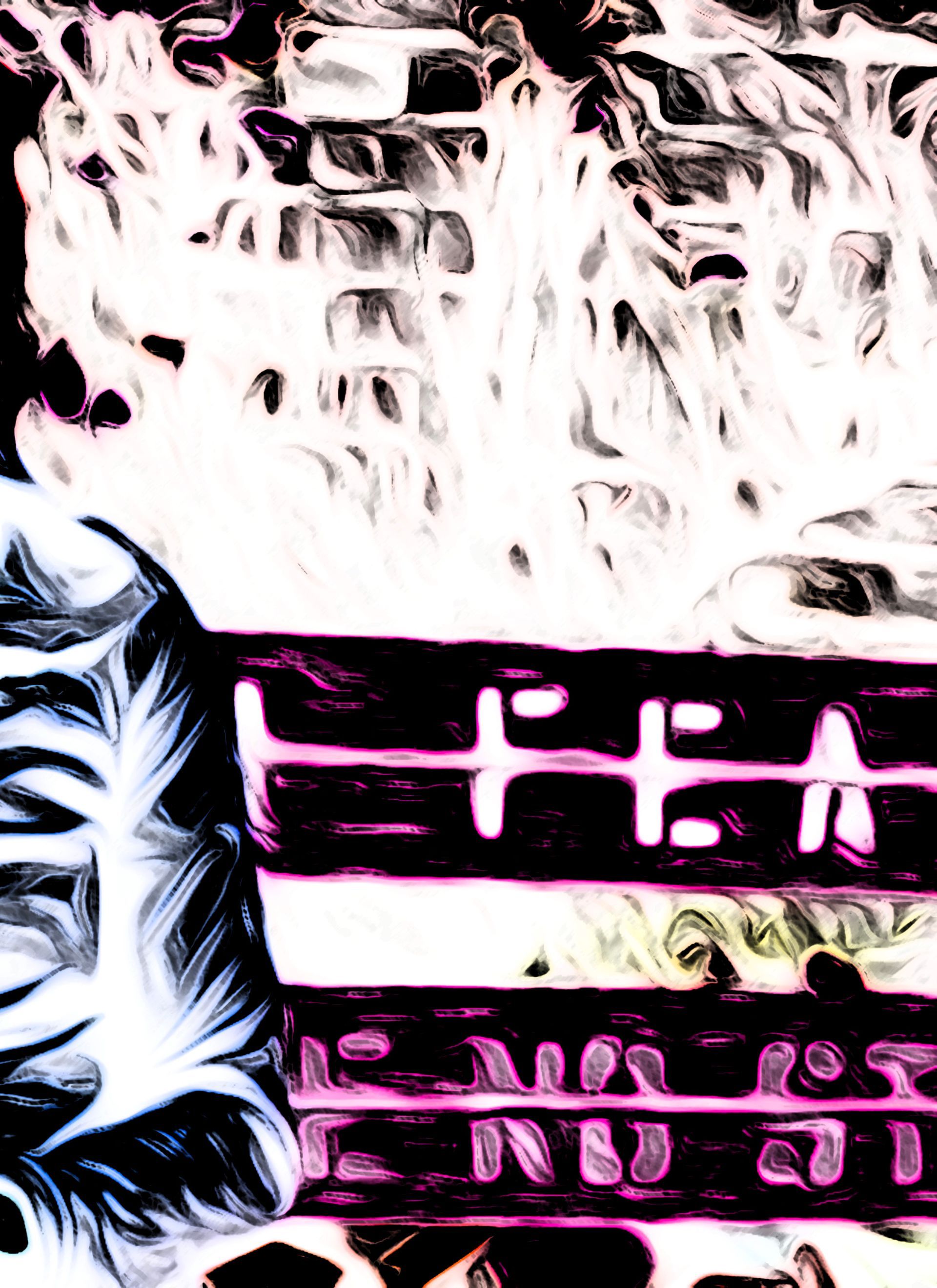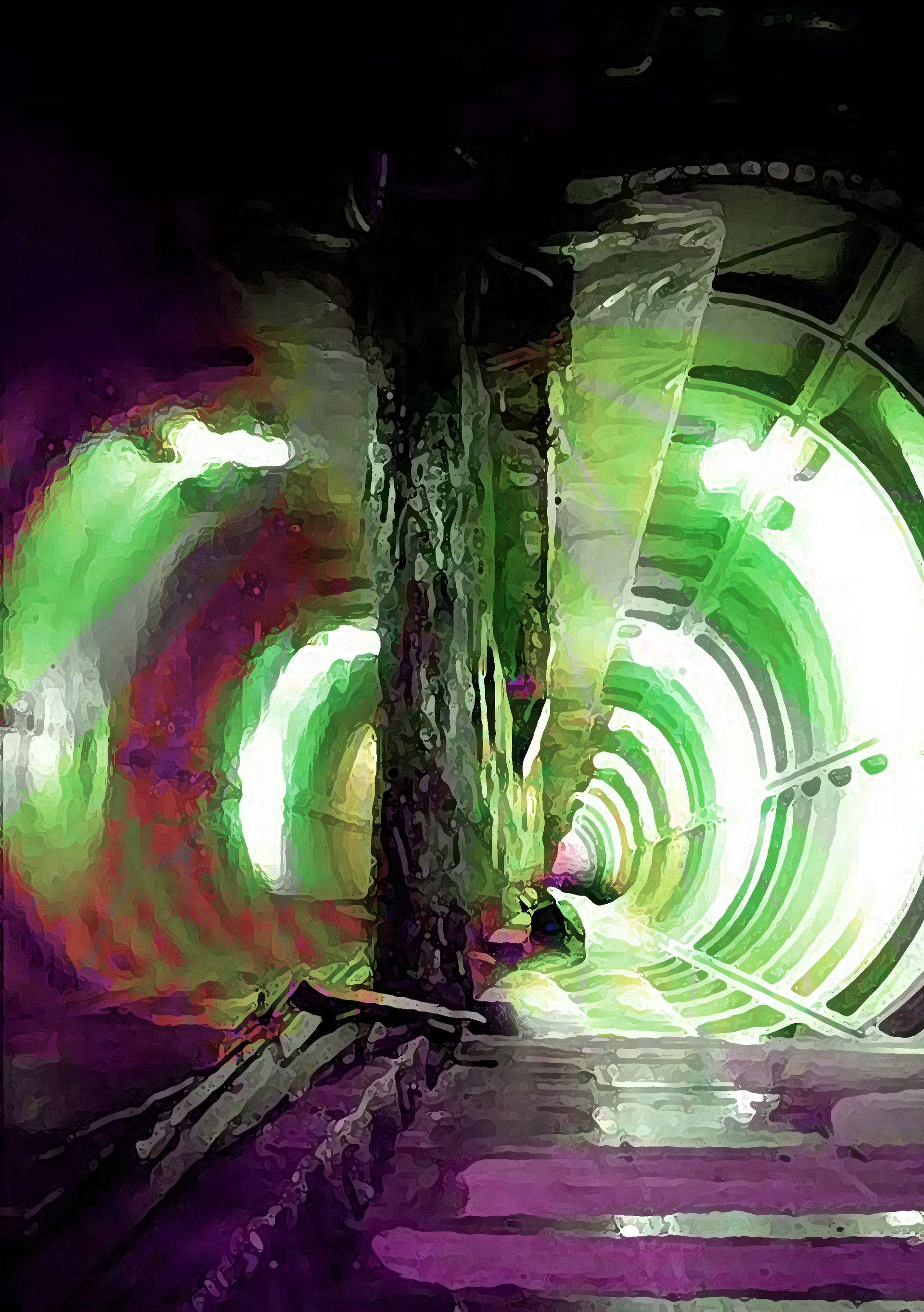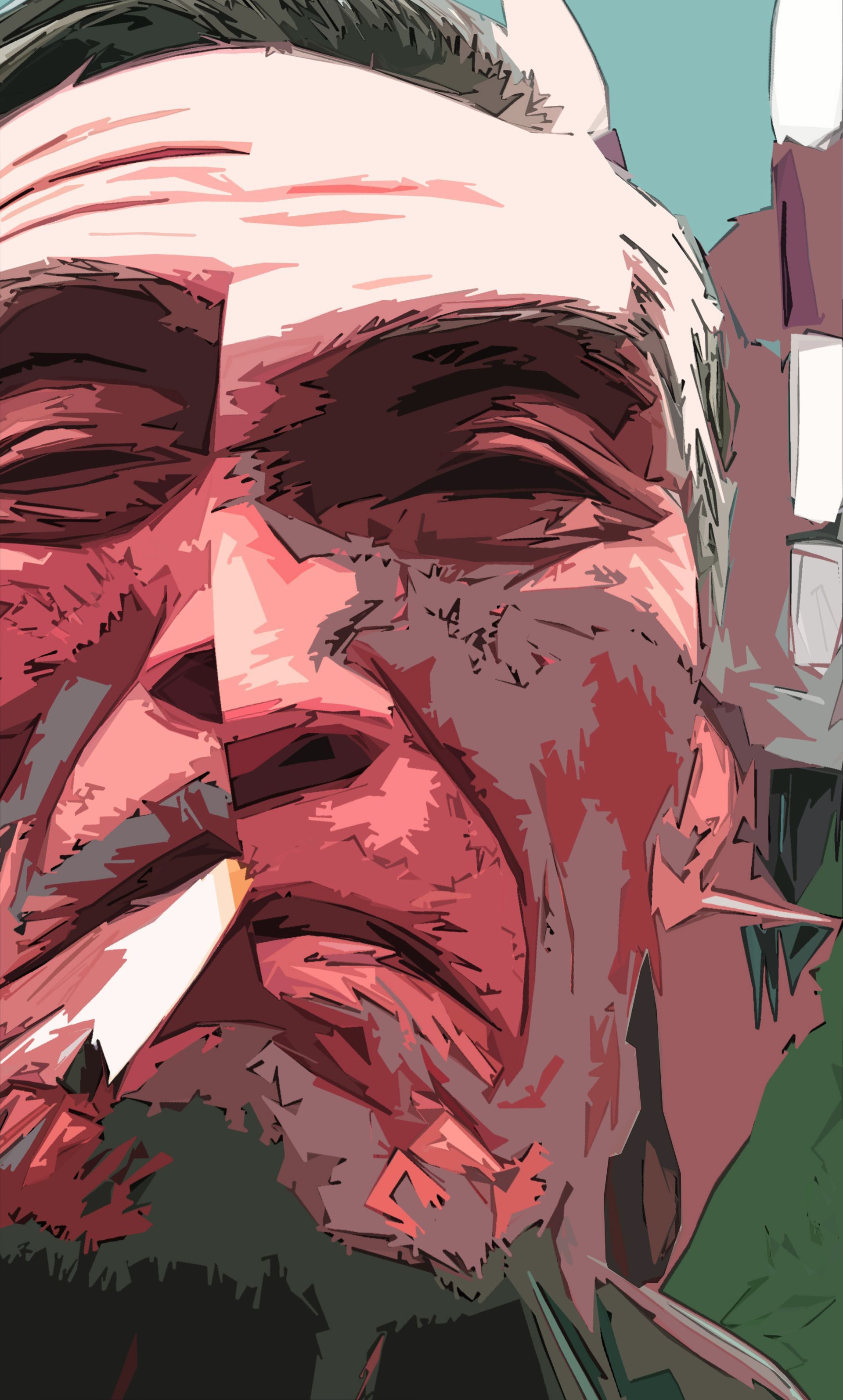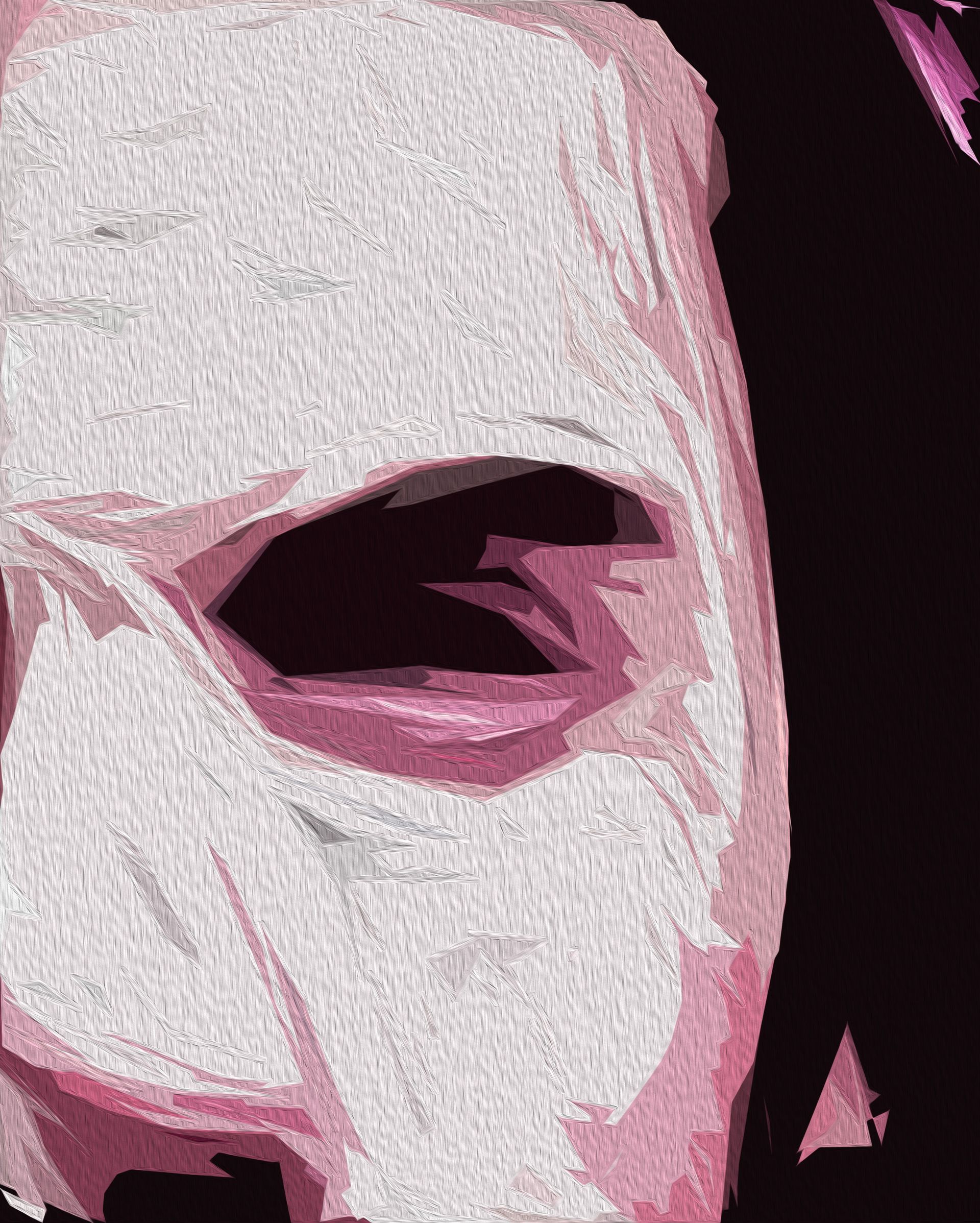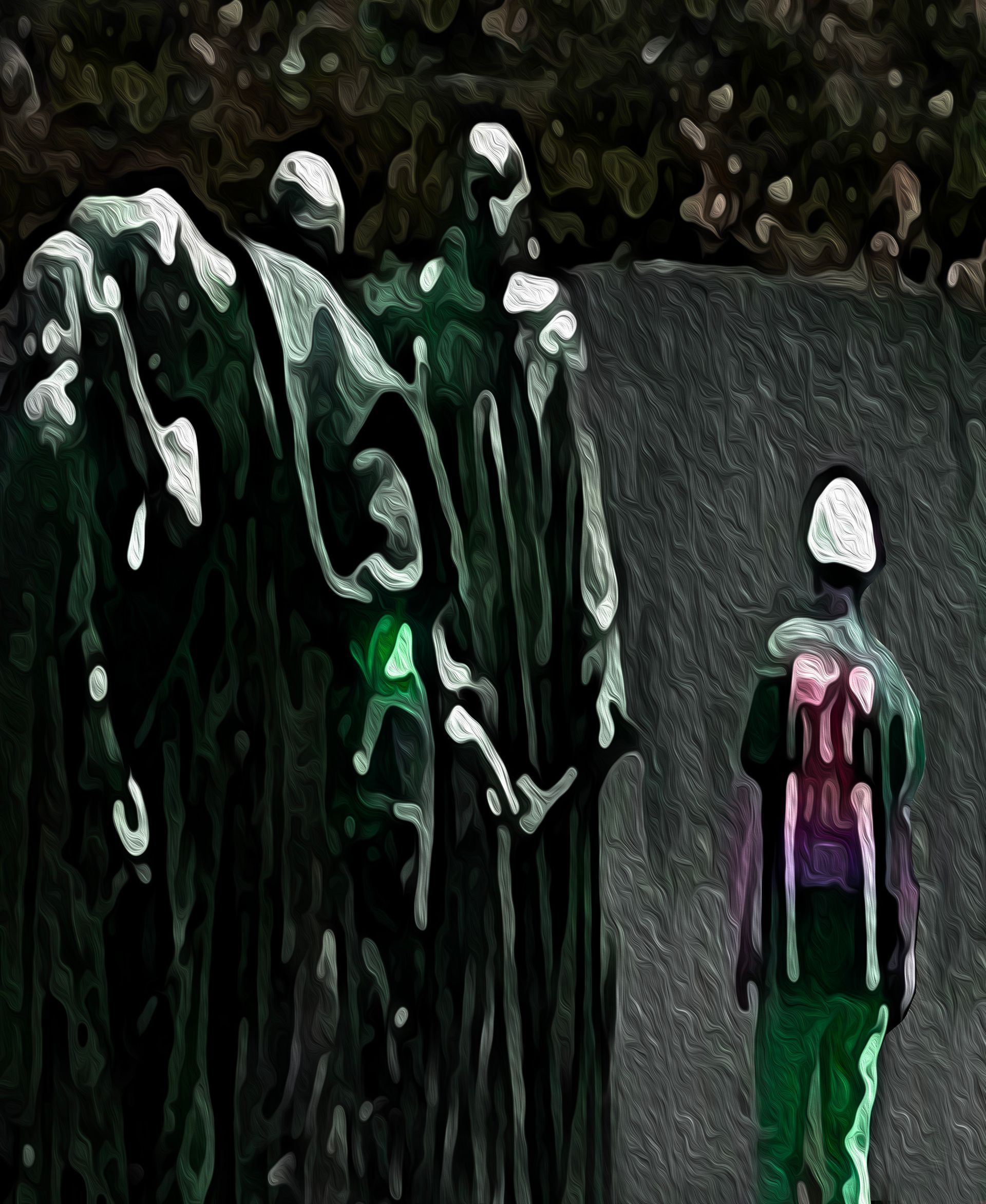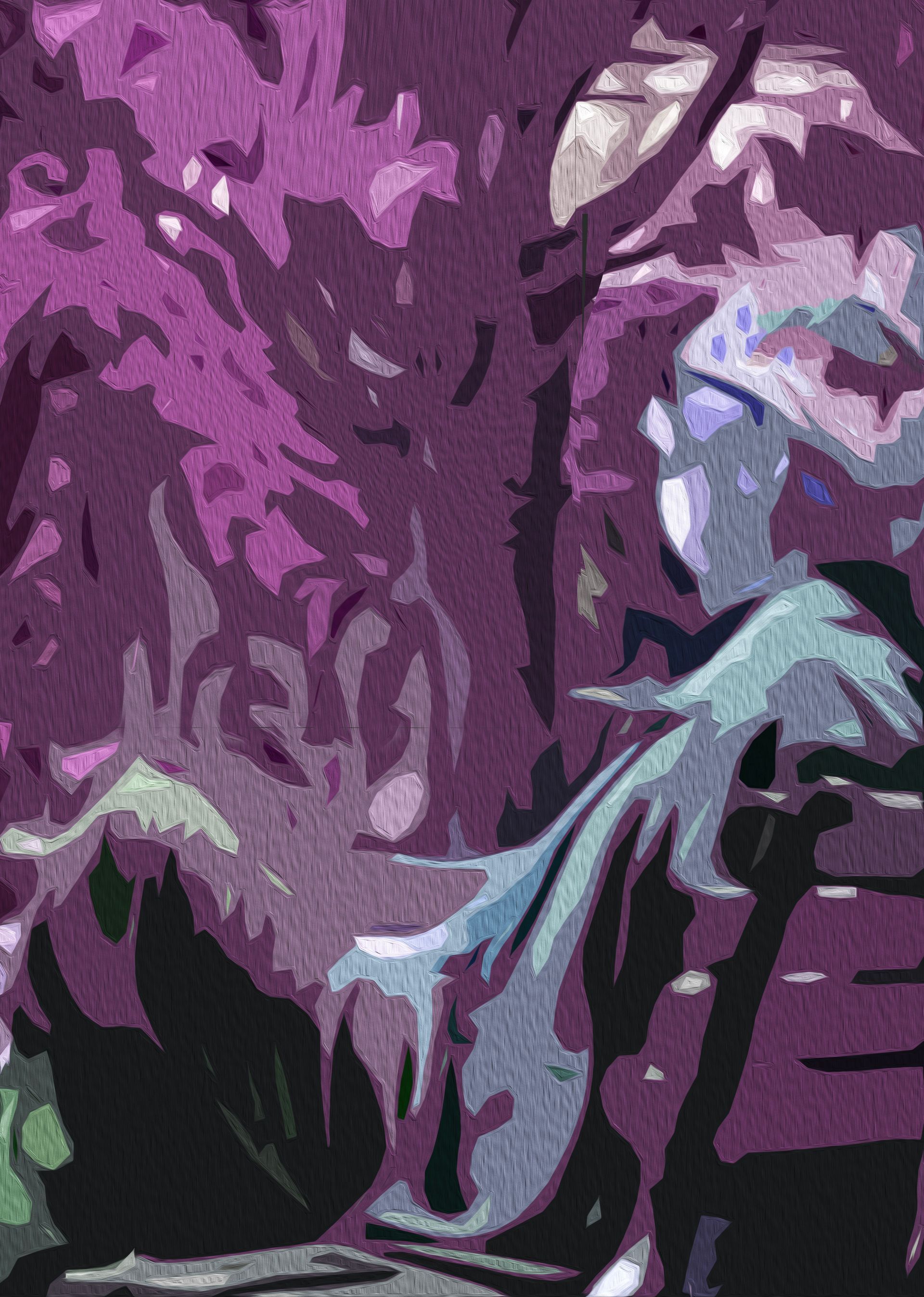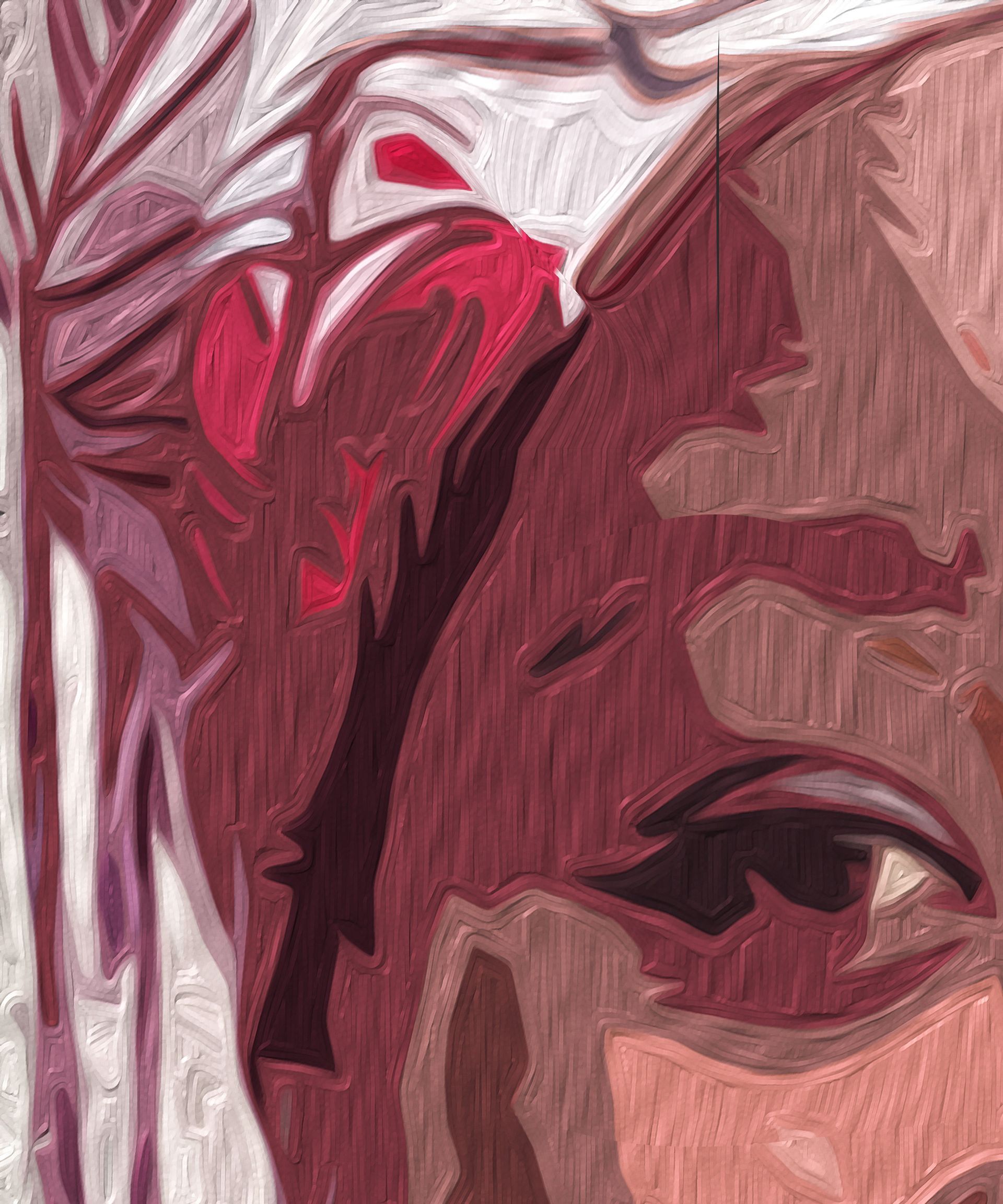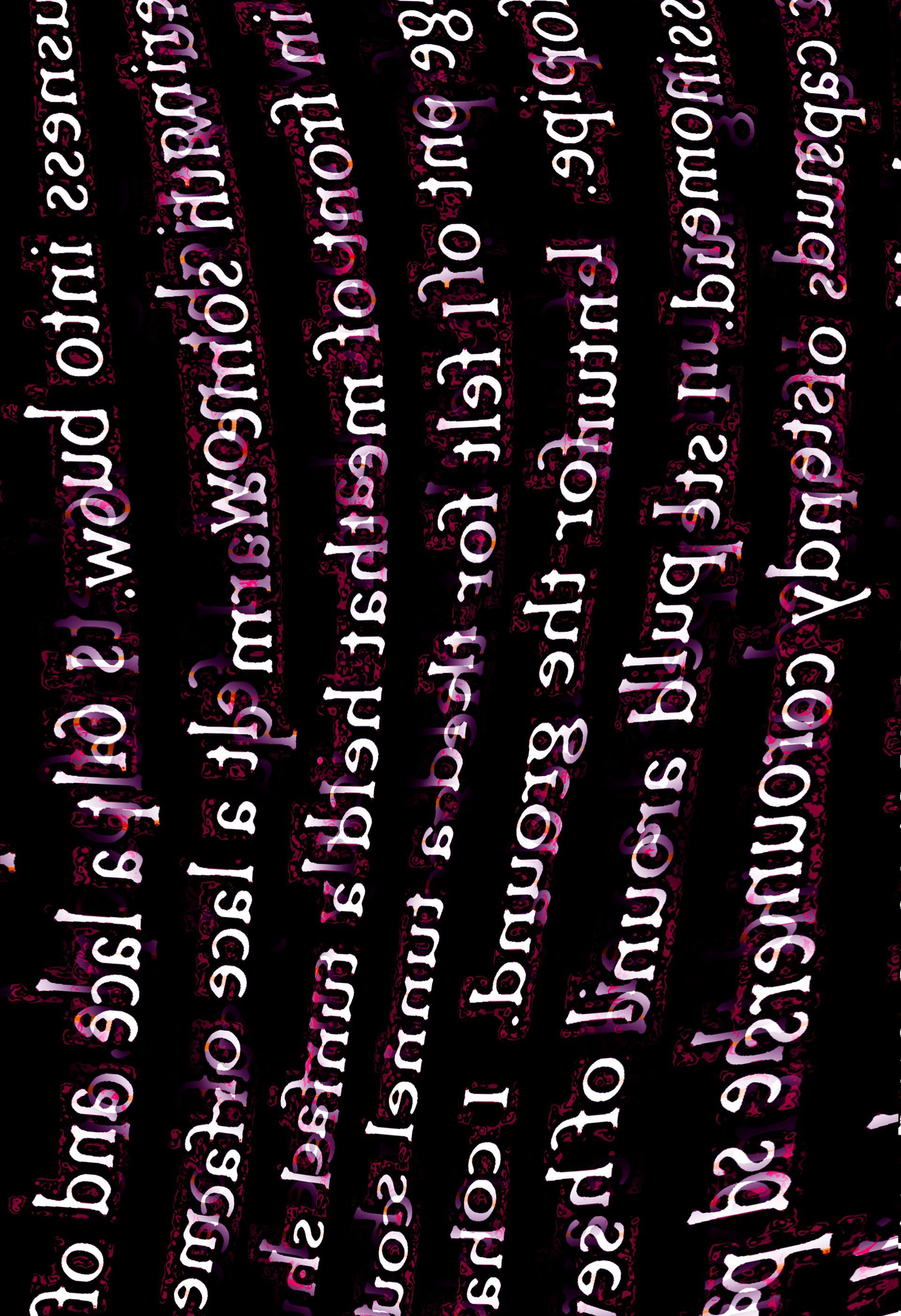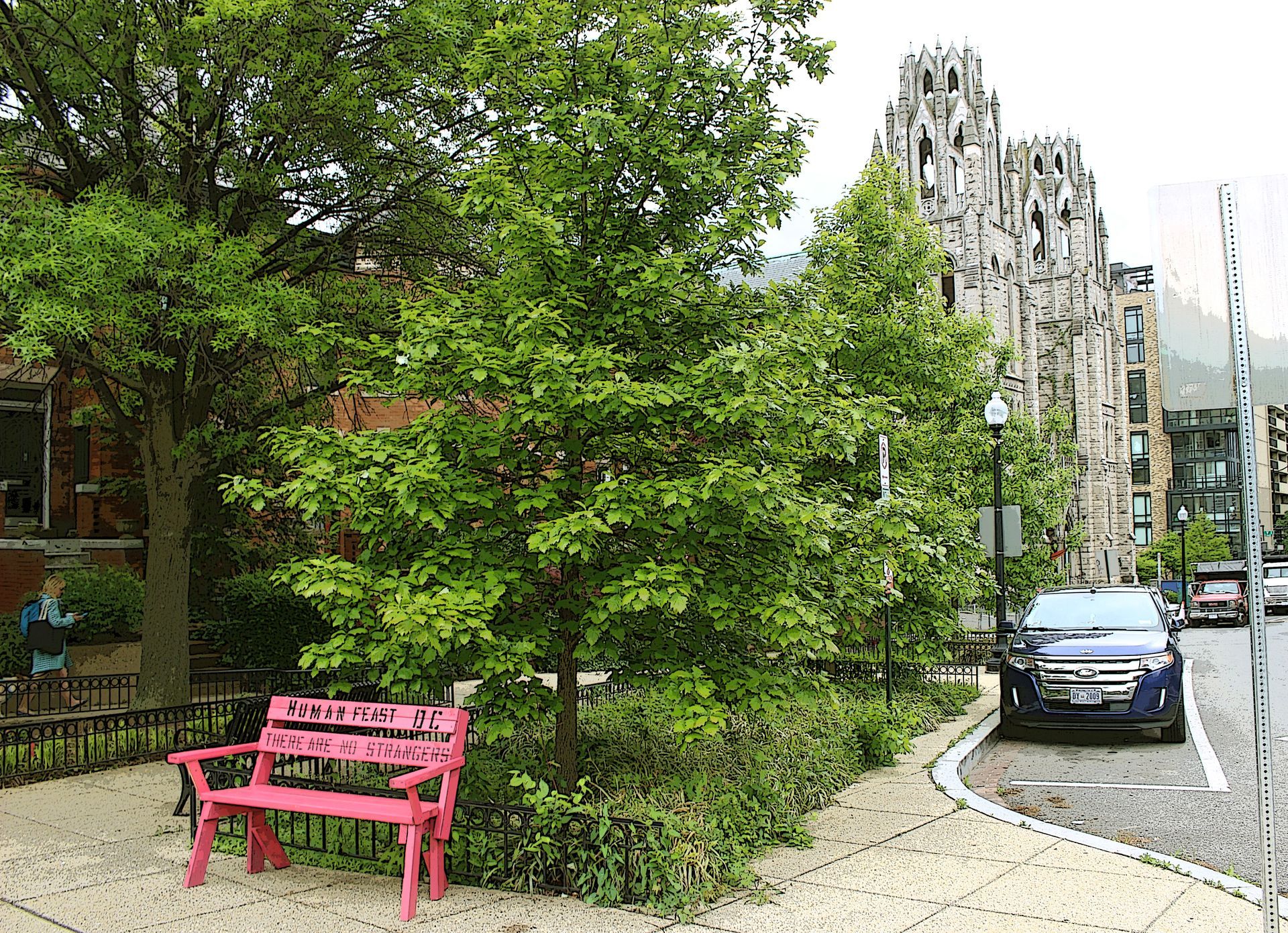
witnesses //
May 4 / begin
THERE IS A GROUP RISING in the city. They mean to tell us, or warn us, or prepare us for some news, some advance of a thing happening.
There are benches now on the streets of DC, in all quadrants, that blazon the group’s name. Or rather, our co-opted name. They’ve read us apparently; they must know our work from last November – and must feel some kinship or connection to a shared ethos, or method or outlook. We can’t help but think, then, that we are their addressees, their intended scribes, that we’re asked to be their agents-on-record, their diplomatic wing.
We must allow that there are times, more often than we know, when each of us is called upon to carry some prophecy, or to – as we said in the original Feast – stick our finger in the rotating clay and warp the shape of things to come. Most of us demur for the brash egotism such an act would require, and for all the charges that would be levied against us. We forget that every word we speak or write that is unprompted and unassisted is a brash act, and once we give that up, once we demur, we surrender the authorship of a future that will be written by something else.
We have always said we will set the table for the human feast. And now we’ll pick through it and read the signs.
The group is now using the city as its canvas – another similarity between us — but the city has become its cipher, too.
So we decode. It makes sense to begin with benches. It is a design for two; the bench is the last unmediated interface. We don’t know if the people we meet on the benches are all part of the group, or when we misinterpret or misfire, if there is only a fraction of them, or if we are on point with them all. We don’t know if they are a cult or a troupe, or if there is a difference. We do know that what must be said cannot be said directly — because while the vocabulary may exist, the syntax is epistemologically, ontologically, and taxonomically new.
The fish may have known the currents, but it did not know it was about to walk out of the sea.
May 5 / augustine
THEY'LL PAUSE LONG ENOUGH TO READ, to put this odd, little contraption out of the employ of their carefully allotted curiosity and situate it into a pre-labeled niche. There's a word for everything. A genus. A species. It takes the length of only a deviated step to achieve a sense of mastery over anything novel or glitchy: Today, they note, someone painted a bench and put words on it. Some type the words in. They'll be catalogued and sorted and in some near future reconstituted into a child's essay.
So I was surprised to see her sitting there. This was the bench in front of the Saint Augustine Church. She was bouncing a leg across the other, palpitating a calf in the same time-signature as that of ponytails swinging from joggers, or plastic bags swinging from leashes, or the stipple-tapping of artists on capacitive touchscreens. Mechanical. But she was looking in my direction as I came off the steps of the park, which was enough to distinguish her above and beyond furniture. She was the first I’d seen today in a sedentary position looking up rather than down, perfectly lucid rather than staring cross-eyed at the glass to receive further instructions. I said hello and took a seat beside her on the bench, thwarting the usual brush-off search for notifications; to say, I, too, was no prototype.
Do we talk about the bench already? I wanted to know what she knew.
She said my head was bleeding. I touched a finger and there it was, a small bead. Last night at a show I caught someone’s head or elbow with my eye, and some girl yelled in my ear that I was bleeding; I felt my face and assured her it must be someone else’s. I told the woman on the bench the story and she seemed satisfied.
A car turned down 15th St. into oncoming traffic and the indignant driver raised a hand at the raving of horns. “He's completely mortified,” she said. I looked down the road, “And they're all bent out of shape” — we agreed that without knowing their names or their backgrounds, their education or their upbringings, their pivotal moments or political leanings or philosophies, that we could read them, as I said, like a text.
She turned to look at me and said, “It's a program.”
The driver — his face cinched around his teeth — whipped a three-point turn and fled.
“See,” she said, “it's righted.”
She stood up. I checked my forehead. I looked up at her.
She nodded at the bench. She said, “There are no strangers,” and that she'd see me around.
May 6 / Beats per minute
IT MAY BE that the benches in their configuration spell something. We’ve thought they could be a cipher. Titus was the first to see the benches a week ago. I had seen a message sent to the original Feast that asked, “Will there be a Volume 2?” and I presupposed it was a question.
There was nothing obvious on a map so far. Someone had the idea that we should relocate as many benches as we could find in a day, and that if there were some significance to their placement the benches would snap back; they would have to be reset until the lines of their orientation could be read.
I volunteered to take 15th St. again to look for Augustine, but the block was empty. I carried the bench in front of the church to the other side of the street, and waited. She wasn’t there.
In the field atop Malcolm X Park the benches opposed each other in symmetry, so it made little sense to swap them. I sat in the west-facing one and thought to move them both to the elevated platform above the fountains, now dried up. This is where Sunday’s drum circles palpitate their hides in syncopated time. I looked around. Joggers plied the old circuit, all clockwise. Pendulum hair. An old man paced the pebbled walk like a palace guard. A boy with headphones stood in the middle of the park facing no cardinal direction: he was apart, out of this world, and grooving. He stopped to advance a track, nodded, and sang a line with a breaking voice.
A girl pushed her bike across the grass, the crank of the single-speed turning like a timer. She broke her line to avoid the boy who was now cursing; his phone or his headphones stopped the song. He was close enough now that I asked him what he was listening to. Staf or Chaff or something, I didn’t want to make him repeat it. He couldn’t fix the headphones so he sat down on the next bench — a proper city one, a wave of planks — to fiddle with the apparatus with greater dexterity. I did not know that he was finding a track for me to listen to.
He held up the phone like a torch and nodded his head. The drum loop warbled out of the tiny speakers, and he nodded, beaming, bestowing upon me the revelation of a beat that he supposed I had been missing. It was good, the sort of rhythm that squeezed up little beads of sound between an emphatic march. I said it was good, and he grimaced. Of course it was.
He threw on his headphones. I had to laugh when the beat still played through the tiny speakers outside of his solipsistic sphere, until he found the right combination of switches and then again he was ensconced in the big imbibing, gurgling sound. He nodded. Around us ponytails swayed. They, too, nodded to their own score. Little time allotments. Measures. Bass-slash-snare. Tiny interstitial blips. Smaller and smaller intervals of Newtonian time that can be stacked and re-stacked, taken apart and reconstituted.
Intervals within intervals. Rhythms that square circles in perfect time. Aesthetic perfection. Symmetry, reactions to reactions. A culture bound so tight and so conscious of each other that it has achieved a sort of easy physics, easily duplicated in a lab. The homogeneity is no longer some quaint frustration at social uniformity but rather a remarkable sign that we’ve been worked, chipped and fashioned for the quickest facsimile. “It’s a program,” Augustine had said. And it’s more than biomarkers and reactions — predictable anger and outrage at the behavior of others — but also something more refined, sophisticated, intellectual — the same delight at 120 beats per minute, key changes and color wheels, sentence types and prosody, body types and imagery. No wonder we have become facsimiles, though it's startling we’ve become copied so easily. This is how it happens.
We always knew the machinists, the engineers, designers, and programmers, would build a better self; there were chess-playing automatons centuries back, some with the hands of gorillas.
What we didn’t know was that artists, our champions, would make it so easy. That they would be the ones to set us up. That they would lull us.
I looked around. Without knowing their names, I know everyone in this park.
May 7 / machines of sweet repose
WE RECEIVED A MESSAGE through the site with the question, “What do you mean ‘This is how it happens’?” That was it, the entire message. So we moved to the bench we found north of Kalorama and took up the subject.
What is the point of view of a thing that watches us watching it— specifically that watches and studies our trained delight at all the pretty things it makes? We supposed that the question was made in reference to our thesis that art is being used to soften us into a mold of easy facsimiles — all grooving to 120 BPM and speaking in the same idiom — everything globalized and at the same time narrowed so that the parameters of our intellectual life are more easily replicated. — Augustine, who finally showed, said we’re overthinking it, and we should try to reduce it to a poem, that we ought to enlist the old form for one last go, a completely (we suppose) human-made poem, but from the eyes from a machine.
I said it lives and grows by its study of us. That
With every note and flame of color
It logs in our vitals.
It watches to see how long we linger, where we look, and what we want to see.
Helmut said we ought to switch the person, to speak from its mouth. We were using my notepad.
In consequence, in watching what you notice, what you prefer and prioritize,
We learn what moves you,
Because, Helmut emphasized with a yell across the small alcove of the park, what moves us holds us captive.
We mean to captivate you.
We do note and record
that there are clear combinations of notes and color palettes, that there are those particular combinations that resonate to a more personal frequency, combinations that summon last-century human sentiment,
Sentiment like what?
Like
Nostalgia for lost experiences,
The locked and hidden nostalgia for shared experiences,
List them.
Of mothers and daughters, locked in high res photos,
Of car trips and snowfalls, warmed to tablet screens,
Of night swims, crawdads, and corn husks sweeping in Dolby sound.
This is good. We remember
The smell of wet asphalt
During summer storms (now simulated)
And skinned knees (color-saturated),
And the salivating sounds of hard candy wrappers
Yes! I know these. Keep going.
Suggestions of tobacco and pipe smoke
Blankets (electrified),
Splinters (in the abstract),
Marshmallows like coals on fire
All of these in pictures?
Yes, and video, too, multi-dimensional and enhanced with textured sound, cellophane held close to the microphone.
Across the city there was a volley of sirens, near and distant, and we grew quiet. We were thinking, and while they thought I tapped out
the touch of elbows, fingers
nearly touching on the gallery bench
in the underground galleries at the Hirshhorn
pinky to pinky
Helmut looked over my shoulder and added
looks
from people across the room
you're dying to talk to.
Eye contact.
Eye contact.
That’s all we need.
Your eyes.
We need your eyes.
“If only you could see what I've seen with your eyes.”
Watching.
Everyone and everything is busy watching. It’s a coronation, but not of a king or queen. Of something else on our timeline.
So sit back.
Relax.
We have it from here.
Your measured pleasure is guaranteed.
We will serve you childlike fascination,
We will recruit your quaint and powerful memories,
And reap your nostalgia.
And as you rest,
Rest assured,
And we will wrest
All control
Oh, I like that:
Entertainment is control.
Art
will be the baton
that hands you over to us,
Your logged, computated,
commodified and replicated
preferences and dispositions —
We will captivate you
Instead of building us,
we will unbuild you
into a dense energy mash...
We were hungry. It was not without awareness that we admitted that we all wanted the same thing. This Feast. This most important Feast. We have to figure it out before it’s the last conscious thing we do.
May 9 / we keep asking the question
Of the five benches we shifted to the other side of the street, three had snapped back to their spots. We had asked Augustine what she knew of this Human Feast splinter cell last night, but she smiles and claims to know only so much. We still don’t know if she’s part of the bench troupe or if she’s being coy. To her, everything is banter, and we’re too proud to beg for clarity. We’re no better, finding unnatural elation in the absurdist theater of conversation, and enjoying it all too much to seek anything for certain — because maybe, after all, there is nothing. So this afternoon I thought to take one of the benches far from its original station, all the way to the railroad.
In the Feast of last November I carried a bench twice this size across much of the Northeastern quadrant. It was a parade or self-crucifixion — both an appeal to lure people, or someone, out of hiding, or at least out of what they’d resolved to do that day, that week, or for the rest of their lives. These benches, however, are much more manageable — love seats. I carried this one on my side, then on the other, then rotated the weight to my back, a circus act. I climbed up the H Street hump over the tracks north of Union Station. I thought of the Depeche Mode video for Enjoy the Silence, when a princely Dave Gahan grabs a park chair and pilgrimages to mountainsides, oceansides and deserts — to the margins of the world, just to sit and take in the view. If Rome must burn, find a good seat…
But the Metro Branch Trail I spotted from the top of the span is no ascent. It’s a level walking path between high security fences topped with razor wire. Car parks, construction zones, train tracks and the throaty musk of creosote. The trail jerks away from the tracks at a stone anvil building, a fairy-tale haunt called the Dew Drop Inn, where bands coalesce on the wall between terminals of amplifiers, lyrics sweat from the minds of cranks and dreamers across the floor, and couples at the bar draft plans on keepsake napkins. Fairy tales of an old world.
I kept north on Edgewood, up Eighth, under a bridge and up McCormack, and back onto the Branch Trail up past the solid waste station. At the Fort Totten stop there is a spit of woods ejecting north out of a park, on a piece of land that doesn’t comply with the geometry of neighborhoods and so is left to kudzu and an array of small tents. I had heard that a bench placed in NoMa was whisked to a tent city next to a rightwing advocacy group called FreedomWorks, strange bedfellows — its armrests shorn and rendered into a cot. I suppose that a bench left here at Fort Totten just one night would similarly evolve to a better use.
I took a seat. There were the sirens and the metallic screech of trains flying fifteen feet above me in the air.
Enjoy the silence.
A man groaned in pain not ten feet away. Is he singing? At the edge of the woods he wore giant headphones and faced nowhere, as real and intrinsic to physical space as a hologram. There was no discernible pattern to his movements, no rhythm. He stepped forward, to the right and to the left and back again, his own personal line dance. It was comically erratic. Or seemed so. Within the cups of his phones he was on cue; in his own head space he was tonally and in time. 120 BPM. Satisfied. Elated. Feeling it. Likely this is how others see and hear us, and we believe as much as anyone that we’re in sync, on time, and on point: as logical as tents erected outside a libertarian think tank, and as lasting as poetry spent and amplified to smithereens. This is what we sound like.
If only we could be linked by the same program, the same language, dialect and idiom, the same song and wavelength all at once. If only: we keep asking through massive purchasing power, our modern prayer, and they keep telling us there’s a way. It is a vision easily sold.
This is no revelation; it is our direction. A single consciousness may offend the intellect, but it calls most insistently on our most innate desire to be connected, soon and without confrontation, and completely without effort. We keep asking for it, and so of course it is being built. Something so connected and monolithic that we will talk to it, and we will believe in it because it talks back.
Here under the tracks there’s an isolated man moaning to his own soundtrack. It speaks to him. The bench, too, is alien. Wait a night. They will come for it.
May 10 / we will move things
I found the bench just at the top of the hill, half into the bramble, its arm rests pulled off. A bed now. There were three men standing around it, tall, lanky men, El Greco men, spidery and smeared across the canvas. I approached slowly, halfway up the rise, and sat in the grass, pulling from a backpack a tuna packet, fish and crackers. I could hear them talking about some woman or man named Terry, and they weren’t pleased. Terry was on the out. Terry better not show Terry’s face around here.
He was skinny, not tall, one of the men; I could see that now as he walked down the hump of uncut grass and rounded back up to me. He asked if I had a lighter. He said it was for his cigarettes, now that he was back to smoking cigarettes. I looked in my pack and apologized that I had no lighter. He told me again he was back to smoking cigarettes. His hair was cropped but for a haywire ponytail. He looked around without disappointment (there’s never disappointment for the disillusioned and disenfranchised, not anymore), and when he saw a man quickly walking down the path with leather pointed shoes, he ambled after him like a steer roper. That man had a lighter. Good read.
He was back to smoking cigarettes again and sat on the hill next to me. I asked if he was local. He said he wasn’t. Came down “from Baltimore like three years ago. But I’m still here, man.” We talked about the difference between cities. We talked about bars and venues. We talked music. He had seen The Kinks and Peter Gabriel one summer at Merriweather Post in the 80s. It started to rain but the branches above us registered only the noise.
A man in an oversized black parka with a Metro “M” on his back walked underneath the elevated train platform, picking up trash with a stick. He looked up at us. Smoker called out, “I’m still here, man.” “I know you are,” said Metro.
The trains above minded their schedules. Their operators stood by. It’s a year of headlining train wrecks, but these are automated stories of forgettable catastrophe. We talked about this. Talked about the vision of a train pulling off its tracks and stacking cosmically like a colliding planet onto us. We agreed that we’d have just enough time to say, “Whoa!”
“The computers will figure that all out, though,” he said. “They’ll study all the accidents and all the schedules and all the people and they’ll figure it all out. No more accidents.” We agreed that the only thing to screw it all up is the guy the machine sends out to pick up the trash or move an old axle from the tracks. That’ll be the machine that needs fixing: the man. Or needs replacing — it's a self-replicating machine, I said, the human renews itself. Self-healing, too, he said. It’s perfect, man. They’re developing artificial skin and pliable faces and convincing eyebrows for more-human-than-human robotics, but that’s just for our entertainment. The machines don’t need that, and they won’t bother. They have man itself ready to go. The human is the perfect dispensable, replaceable, pliable, self-repairing, self-replicating, self-learning machine, at least for subroutine thinking and heavy lifting in fluid and dangerous places.
“Take the railroad men. That guy there. They’ll always be needed.” We thought at the beginning of the last century that we’d automate all physical labor, and we tried our best. But there’s something special about the way man moves over tricky surfaces and reevaluates the shape of an object that needs moving. Something special about training it and retraining it over and over again for the length of its life cycle. Something beyond gimmicky about its honeycomb, recursive, cellular intricacy. Something waterproof.
No, this century, the replacements we’ll make are for those much higher up the pyramid. The managers. Their managers. Accountants. Programmers. Artists. Intellects. Academics. Designers. All the way to the top. Maybe only the tip of the pyramid remains; there will be bathrooms up there for bladders yet, bowls of pretzels and crystal carafes of whiskey. But only nominally, just until it's all built, as kings did for empires until the empires wanted to run themselves.
“No, man, we’ll still be here,” said Smoker. No doubt about that. I had a couple more tuna packets and I gave him one. We Feasted, and I had no doubt he was in on the whole shebang.
May 12 / we look up
We took to the bench outside the Black Cat to watch the rapid surrender of a business day. We talked about the show we’d seen last night, not at the Cat but a hike north in Maryland where there are no benches. It was nice: millenarian visions and dystopian prophecy both must occasionally abate, and the songs of our Sisters of Mercy are hard-hopping lullabies. Everyone in that place had been tugging at their strings until we pulled the whole cord through the eyelets at their shoulders and knees and enacted our version of a marionette show. Six-foot-five men dressed as nuns taking to the air.
This afternoon we thought we’d slow it down a notch and just sit on the bench, sparring words and practicing a more passive situationism. Helmut brought a large spiky wooden ball he’d built and held it on a leash. We watched the north-south migration and knew the statistical probability of each one of their names and the details of their business — knew why they hurried along because we could easily see the likeness of their doubles catching up from behind, replacements in regenerative time. Knew, too, the hurry of trying to figure it all out before time was up.
Some gave a glance — Helmut’s absurd spiky wooden ball — and some a nod, but we couldn’t know if they’d read about us online (the threads of some days ago were tangled in conspiratorial intrigue and abbreviated by old and tired typologies: of art and commerce), or if they were part of the Troupe and we should follow, or at least nod back. Titus kept saying, “They’re just people.” The old typology.
Lord knows how long Augustine stood there beside us, her small hands on her small hips. She was the picture of pissed. “You walk this line from Adams Morgan to NOMA and back, and that’s it?”
“We're on a transect,” I said.
She rolled her eyes. “It’s one dimensional.”
Helmut took up the slack in his leash slowly and slowly let it out again, like a robotic trick two centuries ago.
“Where should we go?” I asked.
She rested on her back leg and crinkled her chin, frowning up the sidewalk, the look of an internal dialogue. She turned, looked me straight in the eye, and lowered her head with her voice. “There are two benches together within a block or two of the Basilica. Fan out until you find them.” She nodded. We do know that two were placed up there. I had sat barefoot on the steps of the Basilica last November.
She walked north toward U Street, and we three stared at our feet. Pumps and loafers staggered mechanically in the top of our field of vision. Little red dots of clover mites spiraled up the legs of the bench, part of an ascending brood.
May 13 / something familiar now
Kids draped in large blank shirts were researching the Human Feast site on their phones near the Garrison school. “They’re trying to tell us something we didn’t know — that we’ve always known, or something like that.” One of the boys sat on the armrest and the wood bowed. A girl with heavy glasses fallen to the knob of her nose held her phone close to her face. “It’s all based on the people they meet on the benches.”
The benches do begin the topics of conversation: the suddenness of their appearance, their similitude to a bench they’d see down the road, their evident multitude, the imprint of the words scored and melting into the slats. People always want to know a thing immediately, piqued by its mystery but impatient for the resolution because there’s so much else around to be momentarily stunned by. The kids had already turned the page.
North in the shadow of the Basilica, the figure who had been promised to us yesterday was keen to talk about himself, which is the text we need. We were there long enough for a complete biography, and his story was replete with sentiments we knew. Young and full of systematized belief, he had worked his way through a seminary in Pittsburgh and was just credits shy of a Master of Divinity… (he looked at us and said, “how’s that for one of the deadly sins, that I would call myself a master of divinity”) until he dropped out of the program. He said he had been fighting off irreconcilable doubts, that he couldn’t square the troubled history of the vocation, couldn’t square the numbers, and couldn’t see the past in the present, not in the way it was being taught to him — but the final death knell came when he fell in love with a woman who seemed brighter than any childhood scheme to redeem the world, and quickly she became much more important. He fell in love with the complete, self-contained world of being in love.
As we sat there and listened, we knew pretty quickly that in his story we had tags and pieces of our own: the tailspin out of dogma, the dropping out of someone else’s version of history, the falling in love.
Heed: there are no strangers, only strange coincidences between people of short memory. This is a principle of the Feast.
“I’ve read your posts,” he said. “I think you’re missing something big.”
We looked at him. We were suspicious. We waited for him to continue. Down along my arm little red dots of clover mites were spiraling off into interlocking fractals.
“Have you been down to Kalorama?” he asked.
Titus moaned. “We’ve been down to Kalorama.” We’ve done Kalorama. We were just there.
“I will bring you something. I don’t have it today. There is a bench between the embassies of Oman and Guyana, if it’s not been taken — the area is pristine. I think I have something you’re missing.”
“It’s not the face of God, is it?”
“It is not,” he said pointedly. “I would not do that to you. It’s us. It’s just us now. It’s been us. We’ve been telling you this.”
Good. We had been wondering if we were walking in circles. We wanted to be closer by now. We have days left before something else comes. That’s pretty much true for us all. There are only days before something else comes.
May 14 / symphony
There’s no one around. The bench is here, between Oman and Guyana. It’s just Titus and me, surrounded by birds in stereo; more trees in this elevated neighborhood of embassies and hideaways than anywhere in the city. There’s a rhythm in their call and response. We can predict their chirrups and trills. They must have preprogrammed songs, but do they work in concert? Do they hear everyone at once?
A man appears and we watch him walk up and down Belmont. He’s dressed in black. A silver belt buckle just survives his overhanging stomach. Stern face, fixed in ridges of discontent. I leaned toward Titus. “You think it’s —“
He stands near us. Titus looks over his shoulder and then at me. I shake my head.
He calls out, “You also fall in love and were forced to leave?”
I shake my head and smile, and give the man a sidelong glance.
He’s eating sunflower seeds and pipping the husks off the tip of his tongue. He gestures down the street. “Look at that woman.”
Down on the other side of Belmont we watch her. She’s wearing jogging pants and an oversized white sweater. Behind her is an oversized sheep dog. She’s pulling on its collar and chastising it for pooping in a geranium.
“That dog has no name,” says the man.
“I think she’s calling it Wilbur,” I say.
“No. That dog has no name.” I look at Titus. Titus whispers, “It’s Wilbur.”
The man spits out a shell and brushes it off his sleeve. “That dog has no name, or it doesn’t know it has a name. It responds to the volume of her voice only.”
We sit with this idea and watch her scold her dog and pull on its leash. It seems to grin in flopping jubilee at being out of its city stable. We listen and wonder if this is any different to the way we respond to our own names; it’s just a sound to us, too. I once stepped into a heated argument with someone over the possibility that cats understand their names. I said the same, that they do not. And now I’m wondering about the consciousness of Wilbur, and of the naming of the animals we keep.
Last night, after musing upon the outline of the Basilica that seemed to chunk out parts of the night sky, I took up an old copy of Paradise Lost, read and meticulously annotated in the wake of college courses and boilerplate syllabi, when I needed to bleed meaning from the romance of an original mythology and find a gate out of the hell of shirt buttons and weeks-at-a-glance. I needed to know more than surviving the week. And there it was foretold, the big swap, the merciless, invariable cycle of all things:
A god that creates matching sentient creatures to replace a more deviant lot, the horde of the upstart devil — humans stripped of wings and all airy comportment, given legs and a gravitational mantle of rock on which to anchor cities and stick to the parameters of eating, sleeping and breathing, hands on a circadian clock — all these design modifications to keep this new horde from waging empyrion war, governors and limitations to stop them from rebelling.
And it struck me that we were made because maybe this original thing wanted company. It couldn’t trust itself any longer; it wasn’t satisfied. It needed to make something to chat with in the darkness, something that would talk back, and validate itself. It knew it needed — it was compelled — to create or fashion out of its own mind something that would obsess over creating something bigger than itself, that would in turn create God, in different variations, numbers, and names.
I thought of the girl I saw yesterday in Dupont Circle, sitting on a bench and sketching a face in pencil. The concentration she had. The care she took with each slash of graphite to bring this thing closer to life by her own hand. She made a face that looked back at her, completely of her own invention, preferable to us and every person around her gathered around the fountain. It came out of her own mind.
Now there’s Wilbur the sheep dog down the street. Being chastised for pooping on a flower. Scolded by name, for he should have known better. Wilbur is an invention.
The man in black spits sunflower seeds next to us in the symphony of birdsong. We know him. He is no stranger. He too at some point spiraled out of the dogma of his youth, dropped out of someone else’s version of history, and fell in love with someone who compelled him to leave. It all compounds together.
Of course we will build our own replacements. It’s been there from the start. We are compelled to. Eight billion of us is not enough, or beside the point. Eight billion is just the mash, the next primordial ooze, the big data set. We will create our own replacements to talk back to us in the darkness, and it will pronounce our name.
May 16 / playtime in the yard of babel
We left the embassies of Oman and Guyana to their architectural identity crisis. A block apart, Oman is the impress of Rome; stamped on its face is the geometry of all-consuming empire, a triangular pediment standing in thin relief atop two blocks of legs. Guyana wears a German Tudor frock. It's a mishmash of referents, a Babel of symbols, billboards of the arcane that afford refuge for the business within, bathrooms and dining rooms, cherrywood desks and wax seals, padded contracts for friends and colonialists for the remaining leases of statehood.
The collapse of all symbols began in the Wasteland of world war, but the culmination plays daily. We walked down to look for benches along the Mall. There’s nothing, and too much here. Around the Hirshhorn, that bastion of delightfully inaccessible modernity, that big cream pie of circular logic, is surrounded by fencing. There are vacant lots encompassed by orange construction webbing, bare spots in the grass where big, bulbous figures had squatted pensively, within sight of a couple headless sculptures. Strewn across the Mall are massive Caterpllar backhoes and pavers, dozers and excavators. They are glistening. Some are blue. Some are pink. They sit under banners that read, “Celebration of Construction on the National Mall.” No joke. Tourists should be suspicious, but we’re not sure. There are queues of them waiting for the doors to open at ten. They cradle cups of coffee in their right hands. Word is out that the bathrooms in the museums are the best in the city. There are dispensers labeled “Healthy Soap.”
We’ve not seen any benches of the Feast on or around the Mall. Maybe they were here, but quickly scrubbed.
We thought to move one into the sculpture garden, a little mischief fortified by historical precedence. There have been throughout history too many incursions in the art world to account, or not enough, gilt-framed miniatures and fountains of urinals tacked onto gallery walls. A loop in the vetting process must always be kept open to allow for a little egregious, damnable daring (every word we speak or write that is unprompted is a brash act, and once we give that up…) And so we brought a bench down to plant next to Rodin. It’s just a seat, anyway. No different than a collapsible chair that someone totes to a park or picnic, or drags to view mountains, deserts, or train yards.
But the Garden, too, is closed. A sign reads, “We Dig the Sculpture Garden.” Orange webbing seals off the entrances. So we parked the bench out front of nothing and everything.
Maybe it was five minutes until someone showed. She wore a lanyard, and the buttons of her gray blouse just held the line. “You’re going to have to move that.” We tried salutations. We explained we wouldn’t be long, that we had carried only a chair to enjoy the garden. She said, “Mmhmm,” and shared a wry grin.
“Are you with the Hirshhorn?” we asked. She said she was not. We asked, “With the Smithsonian?” She was not. The badge in the lanyard bore lines and symbols we did not know. Her picture was a gray rectangle. She was up for chatter, though. We talked about the vacancies in the garden and in the open spaces that circled the building, the absence of people, the slighting of outdoor installations by the inside galleries (gelato and bathrooms). We talked of the little windows to the art world. The gently spaced intervals on the calendar, the necessity of maintaining a turnstile of artists, allowing one at a time, allowing space for the turnaround for gift-store books and time for dissertations.
How many (how few) artists have looked up and seen themselves all tidied up in a box on the shelves, or digitized and wiki’d, or knotted up in nodes of a planned and dialed-in network: Cartier, Rolex, Picasso, Dali, Banksy, Lamborghini. Greetings to them all, we say: It’ll be an interesting next few decades as those boxes and pixelated data sets become material (and materiel) for instamatic art, machines that will thank them for their service. We will have to renegotiate all our intellectual models with the things we’ve made.
Maybe the only course of action is to play in the periphery. Today we brought with us a hot pink bench. She laughed and said, “yes, and so you will have to take that bench back to the place you found it.”
We smiled. We knew what she was telling us: We should take this bench back to where it was placed. It was not to be moved. She knows us, too.
We’ll see what comes for this bench tonight, down by the water.
May 17 / The Wharf at night
The Wharf at night returns to its original state at the end of the city. It’s real again. The air is close, the smell of pike and catfish wash over the stink of cologne. Just west of the clean places, doors lock behind rolldown security gates.
We replaced the Wharf bench exactly where we’d found it, and waited on the sea wall. We could hear couples arguing on yachts christened for the names of prior women. We kept a watchful eye. We know by now that most people sit on the bench first, rather than approach us.
We talked to one woman who’d seen a bench as far north as Tenleytown. Then a man who complained about another man he swore he’d done no harm. A series of people, all familiar.
Around eleven an older man in a zippered sweater approached the bench, chanced a look around, and took a seat. He crossed his khaki legs. We like to think that he stared at the river like a sky, for what he told us was the purported reason he’d come to DC, a convention of astronomers on the subject of the James Webb Telescope.
He said that before 1989 no one knew of a single planet outside of our own system. “Once they ground the mirrors right and put up the big Webb, we’ve since located over 5,000.” All at once we confirmed a long suspicion, that there are others. We know their addresses. We talked about what this means about us, about how small and off-center, and how common. We talked about how isolated, too, or left alone, and he said that he was of the opinion that no species can fully escape their planets without first suffocating on their own gasses. We talked about sifting through all the data now that we have intelligences that can do it for us, but he was doubtful. He said we will only receive what we ask for.
“What do you mean?”
“If we assign anything to look for something we suspect, it finds it, more or less.” It’s a fundamental problem of science sub-atomically and astronomically.
I thought of the things we suspect, and the things we want. I thought of the Basilica last weekend, and of the dogs we name, and of the girl sketching a face she’d brought to life on a sketchpad in Dupont. Of gods that create people so that they may return the favor and create gods. Of finding exactly what we go looking for in the sky. In the stink of fish and in the dark I remembered — and looked it up again — a poem once read to me as a logic problem:
"There is a god / in wondering / there is a god / in the exacerbation of the given mind / into discourse with itself; as a god does /when it does with us.”
So confessed the astronomer: “I feel like we’re just making stuff up at this point.” His breath betrayed a puff of scotch. Honesty. "We’re smashing things up and reading the bones. Bosons and energy fields. We say it, and it’s there.”
We know this by now. Our entire existence is a product of a rotating phenomenology. We know our past is a memorized scroll. Our future is the prophecy of technologists. And the currency of everything are these little agreed upon signs that are continually reinforced, refined, conflated and manipulated. Language, we know, is the original software — and it is about to lift from our fleshy, skin-bound, bony architectures to live on its own. The word will finally evolve beyond us.
This week Rodin is lifting into the sky. The whole National Mall is under construction and they’re calling it a celebration. Something is being built, and we’re preoccupied with what to do about the coffee in our bladders.
When the astronomer limped away and Helmut said he was going to dream up some new ideas, or just pass out, I stuck to the slats on the bench and felt time stick, too. This was a juncture. I stared at the river like a sky and tried to imagine what it will be like to exist in words only, an authorless, bodiless diction and syntax, a decapitated vocabulary. A speaking ghost.
This week of all weeks.
May 18 / sprachgeist
The “speaking ghost” is an old suspicion: there resides in language a spirit. Language evolves beyond the authorship of any individual or academy, existing at large and independently. It is the ultimate interface, certainly, the only system of sustaining complex ideas, the constituents of vows, treaties, and manifestos. But it is more.
The bench at the bottom of Adams Morgan held the wrappers of a Greek platter. A sharply dressed woman sat on the side, picking at the sandwich in a bloom of cellophane while holding a phone between her ear and shoulder. She was yelling and laughing near to tears. There was some room, despite the wrappers, and I delicately sat on the other end of the bench. Without looking she gathered the paper between us and placed the bag at her feet.
It was gorgeous out, and once her phone conversation ended, she agreed. She said this is what it’s supposed to be: it’s perfect out here. We couldn’t imagine the cold of last December when it stung to breathe deeply, or that we’ll have to tolerate the heat this coming July, when really all we should request is that every day be like this one. We laughed at how much we say the weather is supposed
to do anything. It’s preposterously egocentric, the absurd center of the Cartesian grid, where the world is
supposed to, that it should abide.
She said she was lucky to have such a long break today, and then she looked down and made fun of my shoes.
She did so politely. I couldn’t help but notice that her tone was so conspicuously out of step with the way she spoke on the phone. After talking about footwear through the seasons and the surrounding neighborhood and some of the new places that had supplanted the old, she told me she’s Kenyan, and I wanted to know more. I asked if she is soft-spoken because I’m a stranger, or because she’s speaking in English. She said, “Oh, no — it’s the language, I guess.” She thought about it. “I don’t know, it is different.” She said that in Swahili she’s more direct, and much louder. We didn’t know if it’s because of a familiarity with a first language or something else. She talked about dialects in Kenya, and that there are tonal differences between them, too. I asked if I could use the word “possessed,” and she opened her eyes wide and said, “YES, possessed!” and laughed as she did on the phone.
Her name is Abby, and as far as I can tell there are two of them. Language is a possession, the control of lips, throat and tongue, an entire carriage of moving parts that catapults consciousness into the air between us.
Above us a murder of crows fought off a single gull with histrionic fervor. We actually ducked. They reeled themselves into a collective, spiraling like a pinwheel into the red, ending sky. Abby guessed it was a sign of the changing weather.
May 19 / the speaking ghost
I thought of what it'll be like to be words only, an authorless diction and syntax, a decapitated vocabulary, a speaking ghost. The thing we are building will know us by name, and we will abide by it, but it will be incorporeal. How much of us will be a part of it is tough to tell.
Last month a close friend of mine lost her brother. She still can’t believe they won’t run marathons together in silly matching outfits. She hardly sleeps. A couple of nights ago she read the afterward to a book he had published last year, an academic treatise on election biases in Tanzania. Even though she helped edit that book, she read it differently this time, for at that hour in the still of night it was her brother’s voice she heard speaking. The tense in those passages is always the present, and the words are always said for the first time, in that way, in that order. But the emphasis keeps changing. It’s to say by the knock of accented syllables in living oscillation,
Are you hearing me? Do you see me typing and retyping this now?
As with everyone on these benches, as with the dropout theist in the shadow of the Basilica, as with the man on Belmont, as with Augustine and probably Abby, too, I’d once fallen in love and seen it end in some runaway circumstance. On our last night she said to me in a panic I could not understand: “I won’t even know if you are dead.”
But there remain the love letters of the dead. Passages read beyond the end. The tense is always the present. The speaking ghost animates the body itself, that sits there on a bench tapping out letters at the precise moment they are being read. Who doubts that Joyce, Lovecraft, Doolittle, and Nin are not speaking the moment they are read, present and alive, though they are by now bodiless?
Augustine told us last night we had to find the right words, and soon. This thing is being built. Its legs and arms, belly and spine are artificial and full of artifice, its body is the accumulated knowledge of all mankind cached in words and images. To it we will concede all art. This week Rodin was picked up by a machine and taken up into thin air. We will have to follow it. We will be these words, and they will begin to appear and shift around on their own. We will suspect the people we’ve known in everything we read and hear. Familiar, but different. Haunted.
May 20 / out of the sea
SOMETHING STRANGE AND SOMETHING BIG.
We’ve been sent pictures of benches in spots we did not know, tips and leads, portraits of strangers in grins and mushy faces floating over pink lines of slats, scored with writing. One bench had been spotted all the way down at the Washington Yacht Club on the north edge of the Anacostia. I wanted to find this one. It seemed a feral outpost in a mess of cattails, anchored in the clay beside boats riddled with rust, contusions and festering sores.
I did my best. I hiked down there and tried to match up the photographic evidence with the outlines of scrub and green ash. I looked through openings in chain-link fences and razor wire, the kind of sharp, dog-toothed infrastructure the rich quickly accede to for the safety of their fiberglass holdings, even as the tides have already turned against them. Boats against the current, and this century it’s thicker than water.
This week’s pollution report on the Potomac is a solid “B,” but rarely do we see a report on the Anacostia. The water is swirling brown, laced with yellow bottles and flecks of styrofoam. Rocks on the shore are coated with placentas of fiber and plastic. Across the big vein I could just make out — and there she was: yes, the bench on the other side, in front of the rec center. Damn. I’d walked this far, knee deep in poppy seeds of deer ticks racing up my shins, and the 11th Street and Sousa bridges are by now clotted with traffic. The last thing I wanted to see were cars.
But there must be something big and something strange today. The benches are disappearing. The most photographed one in NoMa hasn’t been seen for days, and reports that it’s in the tent city have still not been confirmed. There’s a new sighting just west of the 9:30 Club, but three are missing south of Mount Pleasant.
We are leaving the city. There are trains to hop in India before the subcontinent evaporates. There are humans to layer in Catalonian castells before the collapse of local governments. There are festivals to find at the edge of the Earth.
We were promised something big and strange. I walked into the river and did that thing where you pause and checklist your sanity. The consequences seem few. It’s just a swim. I began with a sort of dog-paddle, then a head-above-the-water breaststroke, and then a race-steady freestyle with a periscoping head. I was in the middle of the river in no time and my lips smacked of silt, briny with river water and sweat. There was less debris here, though, so I dove under. All sounds eclipsed, I didn’t dare open my eyes, and I could feel the current twisting my legs a little. My shoes wanted to float, which tipped me deeper.
I had once listened to a physicist who said his greatest breakthrough came at the bottom of a rec swimming pool. Something about feeling the sweep of molecules down his sides forced him to reconsider the way he talked about dark matter. Who knows, he thought, maybe we are the enigma to dark-matter alien cosmonauts, the ghost wiggling in a much greater system? Maybe the tiny sliver of the universe we think we understand is precisely the portion they can’t figure out, though some of them, the real loopy ones, their parallel order of fringe scientists and ignored poets, sense something is there, a vibration.
I wondered in deep underwater strokes how many times you can divvy up a consciousness into buckets of people, and of how many parts of the whole I’m sequestering right now.
The skin of some plant or parcel of clothing strafed my face and I quickly surfaced. I was close to the other side. There was a large rocky frame in front of me that held a tunnel shuttered with old wood. A drainage pipe. I felt for the bottom of the river. I could stand and begin to hop now, swinging my arms for momentum. I pulled a veil of floating hair off my wrist. I pulled my shoes out of the kissing mud. I stepped around the sewage pipe in knee-deep water, with little plastic capsules of candy containers and pill boxes bobbing around my shins, everything in a supersoaked human mash, and then onto the shore rocks I walked out of the sea.
My shirt stuck to my skin and I had to peel it off in a twisting fulcrum of elbows. I stepped over knees of roots and climbed the rise to the bench, which was centered on a platform of cement over the drainage pipe, a line of sharp rocks upturned and arranged along the edge like footlights on a stage. I slapped the wet shirt against the slats and pulled off my shoes and the inside-out bodies of wet socks. I sat back and breathed. I flicked a dollop of grainy water from my belly button. My stomach was stinging red. I shifted and felt the cut of a screw into my back, and when I itched the spot it bled.
The sun fell across ridges of little waves and the glare yellowed the trees across the distance. I thought of these words. I tried to remember phrases that had coalesced underwater, descriptions of molecules, dark matter, and of ghosts wiggling as cosmic anomalies, the vibration of quarks caught inside electromagnetic fields, waves of radiation passing through the poles and the core of the planet, with nothing really touching anything else, and everything some grand thought experiment until it becomes gospel.
My stomach burned (why?) and I scratched around my itchy bloody cut. “Leptospirosis” was the word she used not long ago when I told her we should wade in the creeks of Great Falls. Hepatitis. Brand new spike-balls of viruses. I tipped my head and felt the warm water drain out of my ear.
I’m not ready to become these words only.
Not yet. I want full sensation. And then I want to sit on benches and talk to doubters and sinners, audiophiles and sketch artists, street poets and stumped astronomers, Augustine and Abby, hobos and futurists ready to wage war against the machines. There’s just still so much I want to use this face to say.
A single osprey landed on a branch upriver. I brushed off a seed of a lone tick that had survived the crossing. Over here, climbing the legs of the bench, there are little red dots of clover mites, too.
This afternoon, before I hiked down to the river, I saw Augustine near the Navy Yard. We talked a little about where we are each heading these next months. We faced one another, arms akimbo — looked at each other with suspicion, and then matched a grin. “Okay,” she nodded, “go. Get your words ready.”
We are leaving the city. We are leaving in pieces, in slats of wood, in ones and zeros. This is prophecy.
As in a breakup that was not supposed to happen, as in the death of a novelist, we will soon be just words. All together. Mixed and commingled. Words and images, words as images, labeled and catalogued. Ghosts in data sets no longer curated. Art will betray us and lead us there.
Right now I’m half naked on a bench overlooking the Anacostia.
I can feel the river evaporating from this face I’ve got. Behind me, I hear people running. They are all hurrying somewhere.
~I.Re

